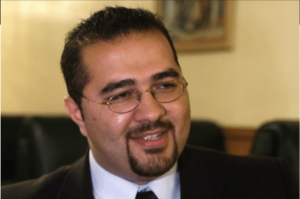WASHINGTON, D.C. – A federal terrorist watchlist, mostly consisting of Muslim Americans, is Islamophobic and being used for “harassment and humiliation” and should be withdrawn, civil rights advocates argue.
Formally known as the Terrorist Screening Dataset, or “TSDS”, the watchlist is made up of more than 1.5 million people, most of whom are Muslim, according to attorneys from the Muslim rights organization the Council on American Islamic Relations (CAIR). Although the FBI says no one can be added to the watchlist due to their race, ethnicity or religion, CAIR found about 98 percent of people on the list are Muslim.
This is despite repeated warnings in the last decade that domestic terrorism from the far right poses a bigger threat to U.S. national security than Islamist extremism.
The watchlist has existed for more than 20 years, since the al-Qaida terrorist attacks on September 11, 2001 – after which many Muslims in America, or people thought to be Muslim, were routinely surveilled and profiled by various law enforcement agencies.
CAIR has filed several lawsuits at different levels involving the watchlist since its creation. Now, it has filed a lawsuit against the federal government, the organization announced earlier this week.
The Council on American Islamic Relations (CAIR) argues the watchlist is used for “humiliation and harassment” and should be withdrawn
“Across the nation, American Muslims targeted by the federal government’s unconstitutional, discriminatory watchlist [are] standing up and demanding justice from the government for 20 years of unjust targeting,” Dawud Walid, CAIR’s executive director of the Michigan chapter, said in a statement.

Mohamed Khairullah, a Borough Council member in Prospect Park, N.J., who was appointed mayor, pauses during an interview in Paterson, N.J., July 30, 2004. A lawsuit filed by (CAIR), an Islamic civil rights group, challenges the constitutionality of the government’s terror watchlist and says Muslims face negative repercussions even after they are able to clear their name off the list. Khairullah is one of the plaintiffs in the case. He thought he had been cleared from the list in 2021, only to find that the Secret Service would not let him attend a White House event earlier this year. – Photo by the AP
“The time has come for the Biden administration to end the use of the watchlist.”
The watchlist is used by many government agencies, including the FBI, the U.S. State Department, Secret Service and other state and local agencies. According to the FBI, the watchlist is used to keep track of “people reasonably suspected to be involved in terrorism (or related activities)”, in order to keep the American people safe.
One man who found himself on the list is Mohamed Khairullah. Khairullah, the longtime mayor of Prospect Park, New Jersey, knew he was once on a federal watchlist but thought he was removed from it in 2021. But earlier this year, he found out he was still on the list when he was denied entry to a White House Eid event for which he had an invitation.
The news left him “baffled, shocked and disappointed”, he told the Associated Press at the time.
The Secret Service declined to provide the AP with a comment on the lawsuit, but an emailed statement to the AP said, “As we stated in the past, we were not able to grant entry to the mayor at the White House and we regret any inconvenience that may have caused.”
Khairullah said traveling became difficult in 2019, after he returned to the U.S. from his native Syria on a visit.
Khairullah’s designation has made flying arduous, both domestically and internationally.
The lawsuit details several instances of Khairullah and his family members being refused traditional airport security checks in favor of lengthy, invasive screenings where they were questioned for several hours and thoroughly searched and patted down before being allowed to board their flight.
It is difficult, if not impossible, to be removed from the watchlist or related databases in most cases, CAIR attorneys argue.
“The mere fact that they had been placed on the watchlist in the past is retained by the government in several different databases… and can continue to harm them,” CAIR attorney Hannah Mullen said.






Leave a Reply